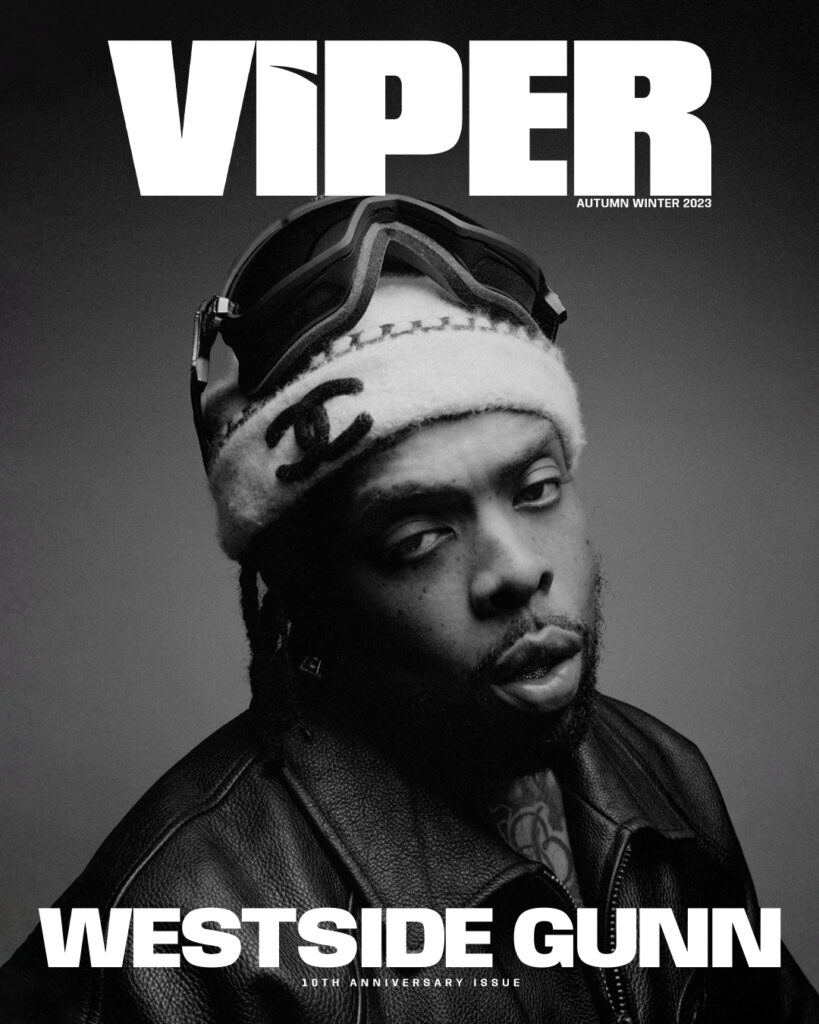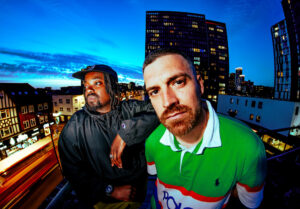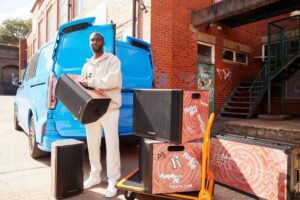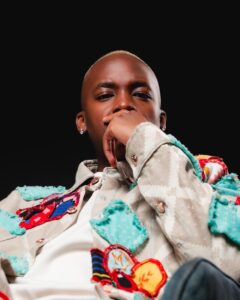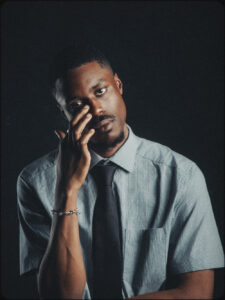DJ AG INTERVIEW: When you think of DJs redefining what it means to move a crowd, both online and off — Viral sensation, DJ AG stands out as a leader in bridging culture, community, and creativity.
With deep musical roots inspired by his family, AG’s journey from spinning records for his block to collaborating with brands like Relentless and Pirate Studios is nothing short of inspiring. In our conversation, we discussed his early influences, the evolution of DJing in the digital era, and how he’s using his platform to educate, uplift, and create opportunities for the next wave of talent. Throughout this article, DJ AG opens up about his creative process, his vision for the UK scene, and the importance of collaboration, authenticity, and purpose behind the decks.
What inspired you to start DJing, and how has your journey evolved over the years?
That’s a great question. So essentially, my dad and my uncles especially, were all into sound, playing music from a very, very young age. I can see the records flying, right? So it’s only right that I took up music. I didn’t essentially have a big focus on that because I wanted to be a footballer, and that was what I wanted to do. But it became apparent very quickly that I wasn’t gonna take that path. I was always collecting music, always catching a vibe, but I was just playing music for my block on the fourth floor where I used to live. My family is definitely a big reason why I do what I do now.
Can you describe the creative process behind selecting tracks for your sets?
I suppose when I was growing up, I listened to a lot of Soul, Reggae, and Dancehall. Those were the predominant genres my family would play. Then when you start going to school and see what everybody else is playing, you get into genres like Garage. I started off on Jungle music, that was my first CD. I remember my first CD pack was ‘Jungle Mania’. I think that’s my first thought of, “Yeah, okay, this is a vibe.” I’d say a lot of it is family, but then as I’ve grown up, what your peers listen to, you kind of follow the wave.
How do you stay connected with your audience while performing, and what role does that connection play in your sets?
I suppose there’s a different variety of scenes. So predominantly, I’m on TikTok and I’m outside at the same time. So you’ve got to focus on one; your online audience, keeping them engaged. But you’ve also got to try and keep everyone else that’s outside engaged as well. I guess it’s a bit of multitasking. I think the key really is, what I do is play my music, talk to my community, and ask some questions online just to check that they’re engaged and enjoying it. And then outside, it’s more about eye contact where and when you can.
TikTok will always be my bread and butter because they’re the reason why I’m doing what I’m doing. It powered that journey, so they’re always going to be the priority in that respect. But getting your eye contact here and there, making sure that before or after the set I really engage and speak to the community, take pictures, and just be there to have a chat.
In your opinion, what is the most significant change in the music scene since you began your career?
The biggest change is going from collecting vinyl and CDs to this whole digital space. That’s a big change. Obviously, music is more accessible now — before you had to go to a studio, then there was a rollout process with TV and everything. The whole rollout process is different. Now, you can make a song in your bedroom, potentially go viral on TikTok or another platform, and that could open the door. So the format of music has changed a lot, but also how accessible it’s become and how much opportunity there is for people on a small budget.
How has technology changed the way you approach DJing, and what tools do you find indispensable?
DJ pools are really important for someone like me — someone that’s really busy and hasn’t got time to do as much crate-digging as I’d like. So definitely DJ pools. I’m part of a variety of DJ pools, which allows me to go in there, see what’s hot, and explore different genres, collect mashups; for me, that’s been a big saviour. So yeah, big up all the DJ pools.
What are DJ Pools?
So DJ pools are a space. It’s like someone’s created a website where songs are uploaded, and then you can consume those. The great thing about DJ pools is that you have your 8-bar or 16-bar intros, which makes mixing a bit easier. Or you have a mashup where they’ll flip the beat, so there’ll be an original song, but they’ll put it onto a different beat, and it sounds a lot different. There are remixes; there are so many things on there that just make it easier to stay fresh. Before DJ pools, you had no choice — you had to go to a shop and do some crazy crate digging. There weren’t nearly as many remixes available as there are now. So yeah, there are just so many opportunities to keep up to date and keep your set fresh.
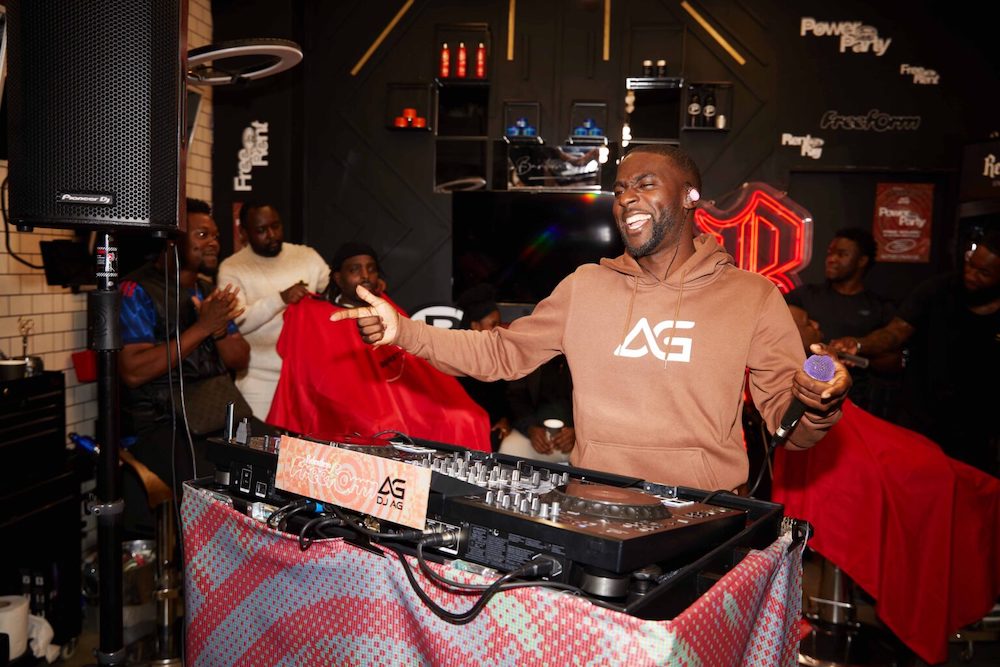
What challenges do you face as a DJ in today’s music industry, and how do you overcome them?
I would say the challenges for me are trying to give people opportunities and trying to educate people on how to get those viral moments, and how important a viral moment is. Education is really a big thing, and we need to try and educate our people. There are a lot of talented individuals out there with 100 or 1,000 followers who have the potential, but they don’t necessarily know how to use that potential to their advantage or understand how the digital marketplace works. Trying to educate them and give them the platform and space — that’s a big challenge right now. Not just in the UK, but worldwide. But if we look at the UK, people are definitely finding it hard to break through for a variety of reasons, and we’ve got to try and help them.
Who are your biggest musical influences and how have they impacted your style?
For me, growing up, DJ EZ is someone I used to listen to a lot — and I still do. The guy’s a technician. I respect his craft, his technical ability, his music selection, and how humble he is. He just seems like an all-around good person. I look forward to meeting him at some point. He’s definitely a reference point from a DJ perspective. And then, I guess, for other influences — my dad, my family, my friends, my peers — everyone’s given me a bit of something, and I’ve just taken the parts I’ve liked and made them my own.
Can you share a defining moment in your career that shaped your identity as an artist?
Good question. I suppose when I first started going outside, the focus was more about DJing for myself — obviously catching a vibe and doing the community stuff, but it was mainly about DJing. The defining moment in my career was deciding to support artists. That was never my intention because it’s crazy outside, you’re dealing with a lot of challenges.
I was dealing with people touching my decks, people throwing objects at me, just a lot of different things. But yeah, a guy called Christopher Cargill, who’s one of my pals, said, “You should bring artists on.” He’s a very big reason why you see what you see now. If he hadn’t said that, I don’t know if I would’ve thought of going down that route. And with his encouragement and suggestion — look at what we’ve built. It’s crazy.
How important is it for you to use music as a bridge between different cultures and communities?
It’s very important, for me as a DJ anyway. I’m open format, so I play a variety of genres — from Afrobeats to Dancehall, to House, to Garage. I can play Bhangra, I can play Punjab, and then have the artists come down, from Burna Boy to DYSTINCT, and you see the number of people that come to view these artists. This is definitely a very diverse space. For me, music is very powerful — it’s universal. And our goal is to take the platform worldwide, because we have to. It’s a must!
You’ve joined forces with Relentless and Pirate Studios on this new project. How do you see it helping the next wave of DJs and collectives coming up across the UK?
The reality is, as I mentioned before, music is definitely more accessible — that we can’t deny — but that’s for an artist. You can even make a recording on your phone and see what people think. But for a DJ, it’s very different. You need equipment, and equipment isn’t cheap. In reality, what would it cost to get something standard to get you up and running? I think about my own career: at best, you’d probably need a laptop, perhaps a controller, then speakers, and all the necessary wiring. There are so many things you need. It could be £500–£600 just to get something very basic, and at a top level, you’re looking at anywhere between £7K to £10K, perhaps. With that in mind, not everyone has £500 or £600 to start something.
Now, what I love about this is the fact that it makes it accessible. Anyone can go online, go onto the website, give a reason why they want some equipment to use, and they can be given it, returning it in good faith. It’s something that I’ve got to be a part of. We’re about the people — giving people the space, the platform, hope. For me, this was such a great thing. I don’t take a lot of brand deals — that’s to really make sure my moral compass is in place. But when this idea was presented to me, I was like, yeah, this fits with what I’m on.
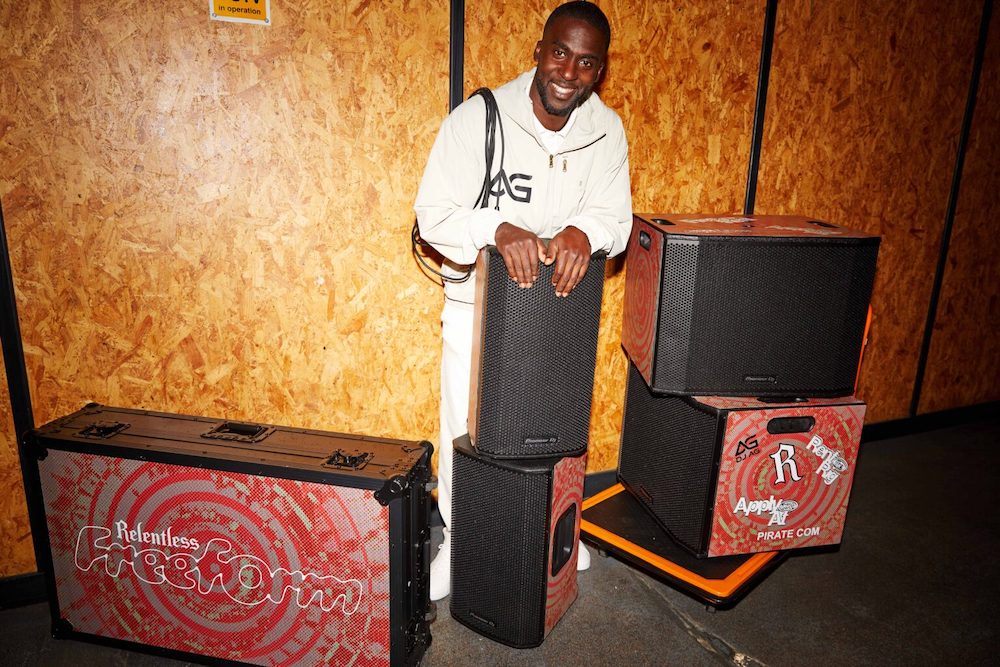
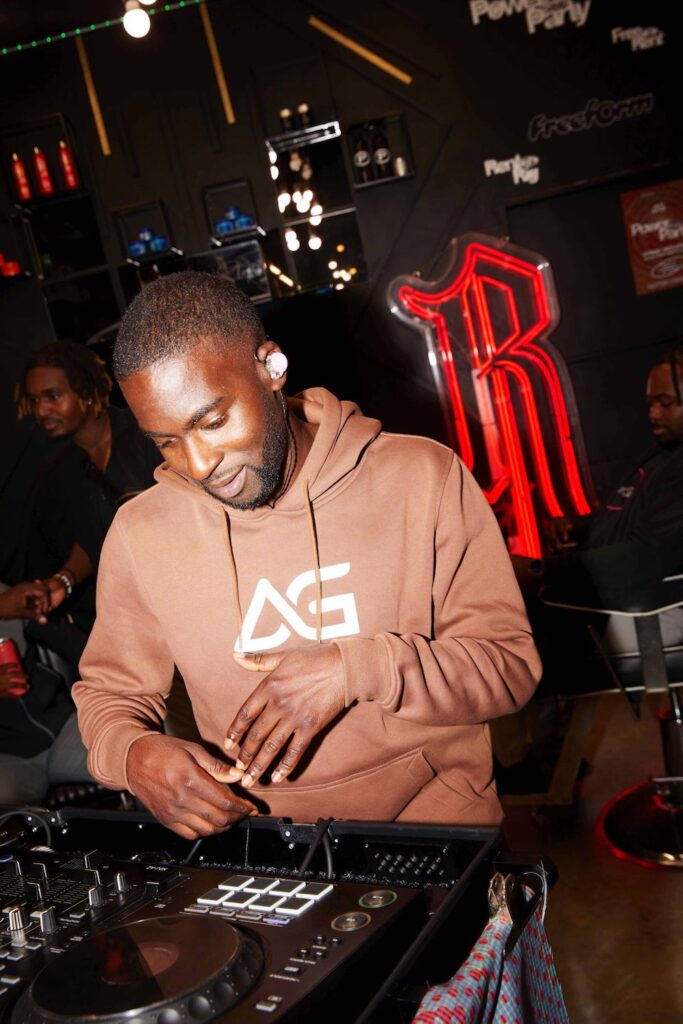
Do you see yourself at the peak of your journey, or are you continuously chasing new milestones?
No, man, we haven’t even scratched the surface. That’s just the reality — we haven’t scratched it. I suppose being able to go to Africa and the countries we’ve been to. To go to America and see if we can crack America. Then you’ve got Brazil, the Reggaeton scene, Grime over there, Japan, where there’s a really big presence for Dancehall, and then going back to Jamaica. There are just so many countries, so many spaces. Look at the UK — it’s not even properly serviced in terms of it being able to go around.
For me, there’s just so much to do, and we ain’t got long because I’m going to retire at some point. We maybe have 10 years to do what we can, make an impact, and then hand the baton. So yeah, that’s the plan.
What are your thoughts on the current trends in DJ culture and music consumption?
It’s a really good question, and I’m gonna be completely honest with you. This journey in itself – I’ve had to sacrifice the DJ side quite a lot. Because there’s so many artists and even for myself right now, I’m trying to play catch up just to keep on top of the music that’s coming through and there’s so much of it. So it’s a great problem to have, but my focus right now, if I’m honest, is more about the artist, the artist development, and making sure they get the opportunities. That has kind of meant that I had to take a bit of a step back. That’s my reality right now.
How important is collaboration with other artists, and can you share some of your favourite collaborations thus far?
Collaboration is everything, and I suppose for me, I look at the platform and think: if I was just a DJ and had just done mixes or whatever, would I have the success that I have now? And the answer is no [laughs]. So for me, 99% of what I do is a collaboration, and that is really the source. You need to collab with people, get out of your comfort zone. Whether I go to a care home and do what I do there, that is a collaboration. That’s exactly what it is. Whether I go and get a dubplate from someone and play it on the streets, posting it online — that’s a collaboration. The artists that come on? That’s a collaboration. Most things I do are not solo because we have some community focus, and that’s what I want to do.
But I’m also aware that collaboration is key. I feel like even in the UK, you don’t really see as much collaboration as there should be, which is a shame. I’m not sure why that is — maybe it’s a “crabs in a barrel” mentality that still exists. But I would like to see more collaborations from everyone. That’s how we level up. The UK is such a small place, and you’re able to elevate by collaborating.
What advice would you give to aspiring DJs looking to make a mark in the industry?
I would say, look, the key thing for me is having fun. That is the important thing. You’ve got to enjoy what you do because, for me, this doesn’t feel like a job. I wake up every day hungry, looking forward to what’s next — what can I push, where can I take this, who can I help? That’s on my mind every minute, every waking moment. You need that fire because there are so many DJs. For me, it’s about having fun — just enjoy what you do.
And it’s not just for DJs, but for everyone out there — all the influencers, the creators. First and foremost, enjoy what you do. You don’t have to follow a trend to be successful, and I would say my journey is a testimony to that. When I think about it now, people thought I was weird. They didn’t even understand what I was doing; they just thought I was this weirdo outside. And sometimes, that’s not even a bad thing. I’m happy to be the weirdo because I know what I’m doing. You might even be playing some weird music — maybe others aren’t feeling it — but you just have to do what you want to do. And as long as you’re consistent, whatever’s meant for you is going to be for you. But above all, enjoy it.
If you could describe the next chapter of DJ AG in three words, what would they be?
Three words would be, inspirational — and I’m hoping that people are inspired. I hope that people are energised. And for me, hope is the key. It’s about giving people hope, man. In these testing times, with war and all of these unnecessary things going on, hope is important.
Words by Nickeeba Archer

